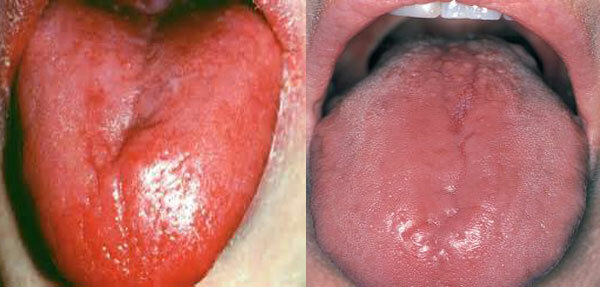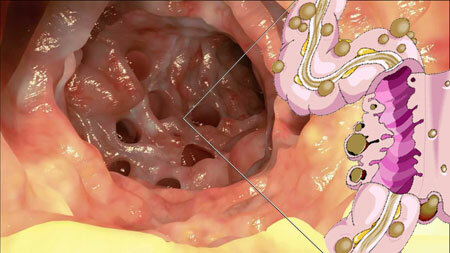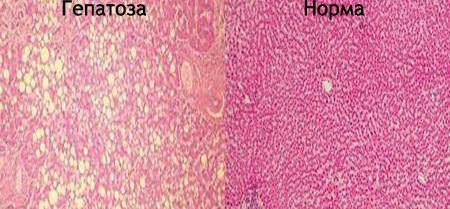The history of the discovery of this bacterium has stretched for centuries. She was studied for a long time, did not recognize and finally found out what role Helicobacter pylori can play in the development of diseases of the digestive system. We will find out what this microorganism is and how to get rid of it.
Contents
- 1 Helicobacter pylori - what is it?
- 2 First signs of helicobacter pylori
- 3 Symptoms Helicobacter pylori
- 4 Treatment Helicobacter pylori, antibiotics
- 5 Therapeutic diet
- 6 Prevention
Helicobacter pylori - what is it?
Helicobacter pylori( Helicobacter pylori) is a small spiral-shaped bacterium that can live on the mucous membrane of the stomach and duodenum.
The uniqueness of the microorganism is that it was previously thought that no bacterium can survive in the stomach due to the aggressive action of hydrochloric acid. To prove the involvement of the bacterium in the development of pathology, the doctor-scientist B. Marshall had to deliberately infect himself with Helicobacter pylori, after which he developed gastritis.
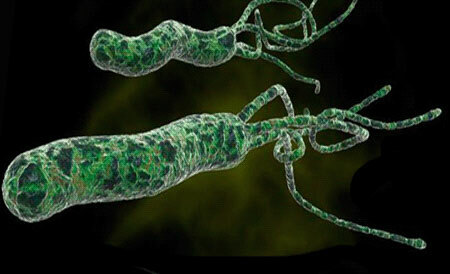
The story ended well, and the doctor not only proved the involvement of Helicobacter pylori in the development of digestive tract diseases, but also managed to get rid of it and gastritis with a two-week course of antibiotic therapy. For this discovery, the doctors were awarded the Nobel Prize.
A scheme for diagnosis and treatment of many diseases of the gastrointestinal tract has changed. It included antibacterial drugs, with the proven connection of the pathology of the gastrointestinal tract with this bacterium.
This bacterium lives in about half of the world's population and in most cases does not manifest itself. Infection Helicobacter pylori, most likely occurs as a child from other family members or close people. The way of transmission is contact-household - when kissing, using common utensils, etc., which is confirmed by the infection of one type of Helicobacter pylori of the whole family.
If a person has contracted it, then it lives on the stomach mucosa throughout life. Get rid of the germ can only drink the prescribed course of antibiotics.
No special measures are taken to identify and treat Helicobacter pylori carriers, as many are not even aware of the presence of this problem due to the absence of symptoms throughout life.
First signs of helicobacter pylori
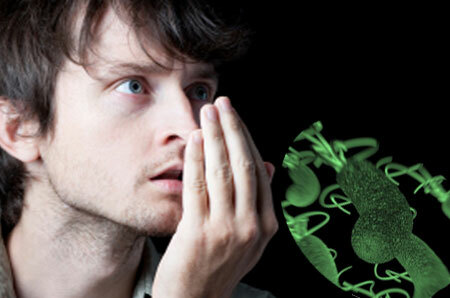
The first symptoms of the disease may be absent for a long time. The disease develops only if there are contributing factors, such as inaccuracies in the diet, stress, reduced immunity, and others.
Symptoms of digestive disorders are manifested: heartburn, bad breath, discomfort after eating, problems with stools are the first signals that something is wrong with the body.
Symptoms Helicobacter pylori
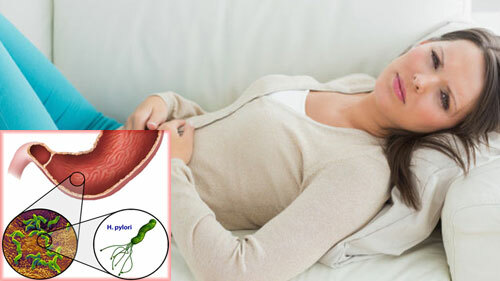
Symptomatic and manifestations of this pathology coincide with signs of gastritis or stomach ulcers. What symptoms make it possible to suspect a problem:
- Soreness in the epigastric region before or after eating.
- Belching with a characteristic smell of hydrogen sulphide( "rotten eggs").
- Feeling of constant nausea, rarely vomiting, which brings relief.
- Bloating and increased gas production.
- Stool disorders: diarrhea or constipation.
- Loss of appetite and unmotivated weight loss.
Important! Often Helicobacter pylori causes symptoms on the face and skin problems. Patients become clients of cosmetologists, not suspecting that the problem lies in a small bacterium and stomach disease.
Before analyzing the symptoms and starting treatment with Helicobacter pylori, the patient is recommended to undergo a diagnostic examination.
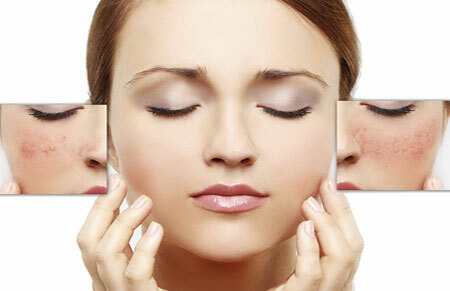
photo manifestations on the face, treatment is not cosmetic!
Types of assays for detecting bacteria:
- Blood test for Helicobacter pylori, which detects antibodies in the blood to the antigens of this bacterium.
- Determination of the antigens of this bacterium in the stool of the patient.
- Ureazny respiratory test for Helicobacter pylori. The method is based on the fact that this bacterium can break down urea. The patient is offered to drink a small amount of urea labeled with radioisotopes, and then they detect the breakdown products by laser spectroscopy in the exhaled air.
- FGD with biopsy. The most reliable and reliable way, which is not without certain drawbacks. So, a biopsy can be taken only from one site, and on the other can live this bacterium. Therefore, a biopsy is taken from different sites in the stomach.
Read more tests for Helicobacter pylori.
Treatment Helicobacter pylori, antibiotics
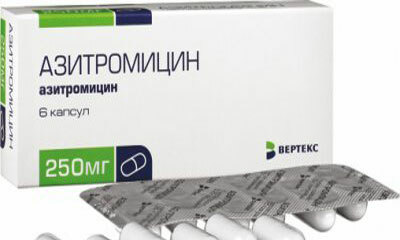
Since Helicobacter pylori can not cause the development of diseases, therapy is performed only in cases of gastritis, ulcers and other pathological processes in the stomach.
Important! Treatment with antibiotic helikobakter pylori in the absence of diseases of the gastrointestinal tract can bring more harm to the body. Therefore, in the absence of evidence, the presence of bacteria is considered the norm and treatment is not carried out.
There are several treatment regimens and the choice is made by the attending physician, taking into account the sensitivity of the bacteria and the patient's reaction to the drugs. What medicines can include:
- Antibiotics. Depending on the treatment option chosen, a patient may be prescribed two, three, rarely - one antibiotic( Azithromycin, Amoxicillin, etc.).
- Antisecretory drugs( famotidine, omeprazole, etc.).
- Based on bismuth.
The control of the destruction of the bacteria is carried out 3-5 weeks after the therapy. Diagnosis is carried out in various ways and, if necessary, treatment is changed and repeated until complete eradication( destruction) of the pathogen.
Treatment Helicobacter pylori folk remedies
Folk therapy can be used in complex treatment. Folk remedies are not capable of destroying a bacterium, but they can remove painful symptoms and improve reparative processes and help restore mucous membranes.
The most effective folk remedies are:
- Decoctions of medicinal herbs with soothing and antiseptic action( chamomile, St. John's wort, aureus, cowberry leaves).
- Oil and flax seeds with enveloping properties.
- Tinctures from flowers of a pear and a dogrose.
Before using folk remedies, it is necessary to consult the treating doctor so as not to harm the body. Traditional treatment is used only as a supplement to traditional medicament therapy.
Therapeutic diet
An important role in the normalization of the digestive system is the observance of the principles of a rational diet:
- Frequent fractional meals, in small portions.
- Refuse from fried, spicy and spicy food.
- Drinking regime.
- Elimination of the use of alcohol and low-alcohol beverages.
- Refusal of marinades, pickles, soda and other "harmful" food.
At first glance, such a diet may seem like a torture for gourmets, but taking care of one's health and the right approach to cooking will allow the patient to enjoy food without harm to the stomach.
Here is an example of a menu for one day of such a diet:
- Breakfast: oatmeal, cottage cheesecakes and compote.
- Snack: chamomile tea and curd soufflé.
- Lunch: chicken soup, steamed fish cutlet with vegetables.
- Second afternoon snack: jelly and baked apples.
- Dinner: steamed turkey with boiled potatoes.
- Late supper: kefir or decoction of rose hips.
The choice of dishes and products depends on the stage of gastritis or ulcers, the presence of exacerbation and other factors.
Prevention
The development of the disease in the presence of Helicobacter pylori depends on the nutrition and lifestyle of a particular person. If the infection has occurred - a person should take care of himself, then the bacterium will not cause harm.
Helicobacter pylori is found everywhere. Modern methods and preparations are used for diagnostics and treatment. To conduct such therapy is recommended only in cases of a proven connection of the development of GIT disease with this bacterium.

